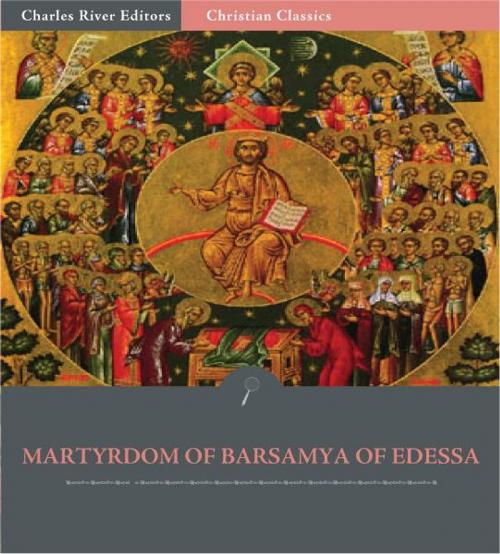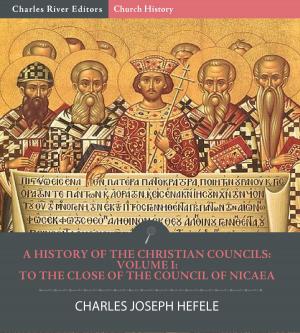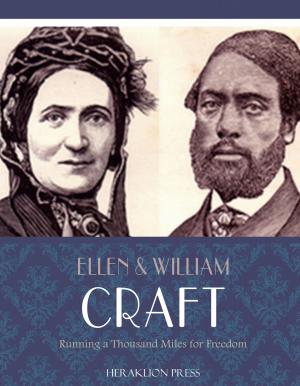Martyrdom of Barsamya of Edessa
Nonfiction, Religion & Spirituality, Christianity, Church, Church History| Author: | Anonymous | ISBN: | 9781619820548 |
| Publisher: | Charles River Editors | Publication: | January 13, 2012 |
| Imprint: | Language: | English |
| Author: | Anonymous |
| ISBN: | 9781619820548 |
| Publisher: | Charles River Editors |
| Publication: | January 13, 2012 |
| Imprint: | |
| Language: | English |
Edessa in Mesopotamia became one of the centers of early Christianity in the first few centuries A.D. The precise date of the introduction of Christianity into Edessa is not known. However, there is no doubt that even before AD 190 Christianity had spread vigorously within Edessa and its surroundings and that (shortly after 201 or even earlier?) the royal house joined the church. According to a legend first reported by Eusebius in the 4th century, Armenian King Abgar V Ukāmā was converted by Addai, who was one of the seventy-two disciples, sent to him by "Judas, who is also called Thomas". Yet various sources confirm that the Abgar who embraced the Christian faith was Abgar IX. Under him Christianity became the official religion of the kingdom. As for Addai, he was neither one of the seventy-two disciples as the legend asserts, nor was sent by Apostle Thomas, as Eusebius says, but a missionary from Judea who evangelized Mesopotamia about the middle of the 2nd century, and became the first bishop of Edessa. Under Roman domination many martyrs suffered at Edessa, including St. Barsamya, who was martyred during the reign of the Roman emperor Decius around 113 A.D. In the meanwhile Christian priests from Edessa had evangelized Eastern Mesopotamia and Persia, and established the first Churches in the kingdom of the Sassanids. Atillâtiâ, Bishop of Edessa, assisted at the First Council of Nicaea (325). The Peregrinatio Silviae (or Etheriae) gives an account of the many sanctuaries at Edessa about 388. It is not known who authored Martyrdom of Barsamya of Edessa.
Edessa in Mesopotamia became one of the centers of early Christianity in the first few centuries A.D. The precise date of the introduction of Christianity into Edessa is not known. However, there is no doubt that even before AD 190 Christianity had spread vigorously within Edessa and its surroundings and that (shortly after 201 or even earlier?) the royal house joined the church. According to a legend first reported by Eusebius in the 4th century, Armenian King Abgar V Ukāmā was converted by Addai, who was one of the seventy-two disciples, sent to him by "Judas, who is also called Thomas". Yet various sources confirm that the Abgar who embraced the Christian faith was Abgar IX. Under him Christianity became the official religion of the kingdom. As for Addai, he was neither one of the seventy-two disciples as the legend asserts, nor was sent by Apostle Thomas, as Eusebius says, but a missionary from Judea who evangelized Mesopotamia about the middle of the 2nd century, and became the first bishop of Edessa. Under Roman domination many martyrs suffered at Edessa, including St. Barsamya, who was martyred during the reign of the Roman emperor Decius around 113 A.D. In the meanwhile Christian priests from Edessa had evangelized Eastern Mesopotamia and Persia, and established the first Churches in the kingdom of the Sassanids. Atillâtiâ, Bishop of Edessa, assisted at the First Council of Nicaea (325). The Peregrinatio Silviae (or Etheriae) gives an account of the many sanctuaries at Edessa about 388. It is not known who authored Martyrdom of Barsamya of Edessa.















